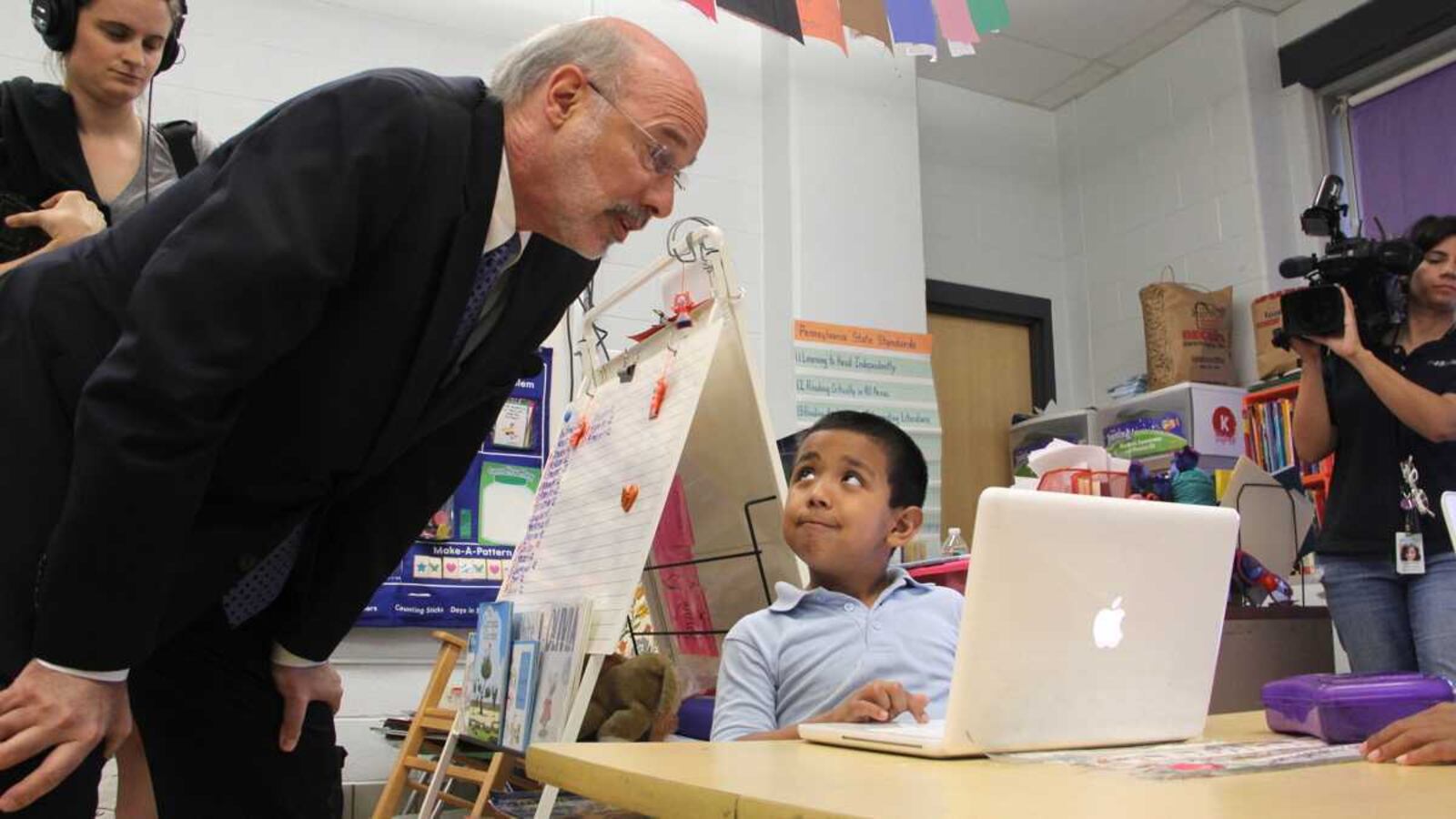This article was originally published in The Notebook. In August 2020, The Notebook became Chalkbeat Philadelphia.
After a scare Tuesday, leaders in the Pennsylvania Capitol said that the framework of a state budget agreement is still intact.
The tentative agreement includes a $400 million increase to K-12 public education this year.
On Monday, Wolf administration officials said that a two-year agreement would boost preK-12 public education by $750 million. Republican leaders insisted that nothing had been set in stone beyond the current fiscal year.
For a few hours Tuesday, the Senate Republican leadership stirred up doubts about the structural integrity of the deal – saying everything was again "up in the air."
Gov. Wolf and Republican leaders allayed anxiety by hosting an impromptu press gaggle late Tuesday, committing to the framework of a one-year pact.
Pressure has mounted to reach an agreement more than four months after the June 30 budget deadline. School districts across the state have had to borrow money just to keep their doors open. Social services agencies have been hurt, and lawmakers have expressed fatigue as the budget battle has superseded all other agendas.
Wolf and the leaders of the Republican-held House and Senate believe they can shake hands on a budget before Thanksgiving, but the deal is far from finalized. Among the details yet to be worked out is the source of the education funding boost.
There’s talk about raising the state tobacco tax, hiking the bank shares tax and possibly shifting gambling revenue into an account that would help school districts pay down pension debt – which has become a major cost driver in recent years.
But Wolf and GOP leaders have reached consensus on an agreement to fund a $2 billion statewide property tax reduction by hiking the state sales tax by 1.25 percent.
Everywhere but Philadelphia and Allegheny County, the sales tax would rise from 6 percent to 7.25 percent.
In Philadelphia, because the sales tax is already higher locally, it would jump to 9.25 percent. In Allegheny County, for similar reasons, it would move to 8.25 percent.
Mayor Nutter and City Council President Darrell Clarke both said it would be premature to comment on this proposal.
State Rep. John Taylor, R-Philadelphia, agreed, but said he’d seek "some sort of exemption" to spare the city from increases "that will put us at uncompetitive levels."
Sources close to the Wolf administration say that there could be a way to keep the sales tax rate down in Philadelphia by lessening the property tax reduction.
As is, advocates for the poor are upset with this deal for its regressive nature. With property taxes potentially going down, while sales and cigarette taxes go up, this aspect of the pact would disproportionately hurt disadvantaged Pennsylvanians.


